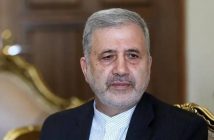dal nostro corrispondente dal Cairo Paul Atallah
Hosni Mubarak, il rais, il tiranno torna a conquistare l’Egitto. Nel corso dell’udienza del processo a suo carico per l’uccisione di dimostranti anti-governativi nel gennaio 2011, il deposto presidente, per il quale il verdetto sarà pronunciato il prossimo 27 settembre, ha preso la parola per la prima volta e forse per l’ultima. Ma ha riconquistato una buona fetta del paese, che comincia a guardarlo da una prospettiva diversa. Lo dicono i sondaggi, come quello riportato da elwatannews.com, che ha sottoposto al giudizio della gente le parole pronunciate dall’ex leader. Sorprendente il risultato: il 74% favorevole contro il 26% dei contrari.(ndr)
Hosni Mubarak, il Rais, the tyrant back to conquer Egypt. In the hearing of his trial for the killing of anti-government demonstrators in January 2011, the deposed president, for which the verdict will be pronounced on 27 September, spoke for the first time and perhaps the last. But he regained a good portion of the country, which is beginning to look to him from a different perspective. The poll asked, as reported by El Watan newspaper, about the people’s opinion regarding Mubarak’s speech.. Surprising result: 74% favorable vs. 26% against. (ndr)
Mubarak, the great man, speaks for the first time. Why he is great and what he said?
1. He was against the Iraqi war On August 2002, Mubarak said that an American attack on Iraq could plunge the Middle East into chaos and he was surprised for the Iraq strike because of one or two individuals while the Palestinian issue had been left unsolved. On April 2003, Mubarak warned of ‘100 bin Ladens’: When it is over, if it is over, this war will have horrible consequences. Instead of having one bin Laden, we will have 100 bin Ladens.
2. He was against a Gaza-Sinai Palestinian State According to Fatah spokesperson Ahmed Assaf, Israel and Hamas were planning a Palestinian state in the Gaza Strip and Egypt’s Sinai Peninsula during Mohamed Morsi’s year.
3. He resigned and responded to the Egyptians request On January 2011, he accepted to resign without any resistance. When we compare his response with the Iraqi Malky, Qadhafi and the Muslim Brotherhood Morsi , we have for sure to give high credits to Mubarak. 4. He ruled Egypt in a period the Islamists started the fiercest bloody attacks against the tourists and the Christians.
Media coverage
Reuters started its coverage by saying that Mubarak was the tyrant toppled by the Tahrir Square uprising. The right version must be: Mubarak was the Egyptian president toppled by the American tyrant who took advantage of the people’s anger to bring the Muslim Brotherhood. On September 2013, Mubarak said that American efforts to remove him began in 2005. In fact, during this period contacts with the Muslim Brotherhood and some protest groups started to topple Mubarak not for the beautiful eyes of the Egyptian people but because Mubarak was not an obedient person to the American Caesar.
Mubarak speech
Mohammed Hosni Mubarak would never order the killing of protesters … or shedding the blood of Egyptians. [The people know very well that the Muslim Brotherhood and Hamas killed the protesters in Tahrir square to create a chaotic situation but some of them would like to keep their convictions: Yes, the MB killed the protesters but we are quite sure that Mubarak killed them!] After it was clear that the final goals of [the protesters]was to bring down the state and its institutions, I took a decision, voluntarily, to step down to preserve the blood and lives of the sons of the nation. From day one I faced the same threat of terrorism that we are facing now today. I never accepted any foreign interference or foreign military existence on Egypt soil. He concluded by saying that his words today might be the last he utters before being buried. “Before my life ends I thank God that I have spent it in defending Egypt and its soil”.
Mubarak’s last testament Keep the unity of our country and be aware of the dangers and plots which are threatening Egypt.
Perché è grande e cosa ha detto?
1. Era contro la Guerra in Iraq. Nell’agosto 2002, Mubarak disse che un attacco Americano all’Iraq avrebbe gettato il Medio Oriente nel caos e fu sorpreso per l’incursione decisa contro il paese a causa di uno o due individui mentre la questione palestinese rimaneva irrisolta. Nell’aprile del 2003, mise in guardia dai “100 Bin Laden”: quando finirà, se finirà, questa guerra avrà orribili conseguenze. Invece di avere un Bin Laden, avrà 100 Bin Laden.
2. Era contro uno stato palestinese a Gaza-Sinai. Secondo il portavoce di Fatah Ahmed Assaf, Israele e Hamas, mentre era al potere Mohammed Morsi, avevano progettato la nascita di uno stato palestinese tra la striscia di Gaza e il Sinai egiziano.
3. Si è dimesso, rispondendo alla richiesta degli egiziani. A gennaio 2011, accettò di dimettersi senza opporre resistenza. Quando noi confrontiamo questa sua reazione con quella di Malky in Iraq, Gheddafi e Morsi, leader dei Fratelli Musulmani, dobbiamo dare alto credito a Mubarak.
4. Ha governato l’Egitto in un periodo in cui gli islamisti cominciavano a sferrare sanguinosi attacchi ai turisti e ai cristiani.
La copertura dei Media
La Reuters ha cominciato il suo servizio dicendo che Mubarak era un tiranno, destituito dalla rivolta di piazza Tahrir. La versione giusta deve essere: Mubarak era il presidente egiziano destituito dal tiranno americano che ha approfittato della rabbia popolare per portare al potere i Fratelli Musulmani. Nel settembre 2013 Mubarak ha detto che gli sforzi americani di rimuoverlo erano cominciati nel 2005. In effetti, in quel periodo i contatti con i Fratelli Musulmani e alcuni gruppi di protesta hanno cominciato a far traballare Mubarak, non per i begli occhi del popolo egiziano, ma perché non obbediva al Cesare americano.
Il discorso di Mubarak
Mohammed Hosni Mubarak non avrebbe mai ordinato di uccidere i dimostranti o di versare il sangue degli egiziani. (Il popolo sa molto bene che i Fratelli Musulmani e Hamas hanno ucciso i dimostranti in piazza Tahrir per creare una situazione di caos ma ad alcuni di loro piacerebbe continuare a credere: sì, i Fratelli Musulmani hanno ucciso i dimostranti ma siamo abbastanza sicuri che li ha uccisi Mubarak). Dopo che fu chiaro che l’obiettivo finale dei manifestanti era abbattere lo stato e le sue istituzioni, io presi la decisione, volontaria, di farmi da parte per risparmiare il sangue e le vite dei figli della nazione. Dal primo giorno ho dovuto fare i conti con la stessa minaccia di terrorismo che c’è oggi. Non ho mai accettato interferenze straniere e la presenza di militari stranieri in Egitto. Mubarak ha concluso dicendo che le sue parole forse erano le ultime prima di morire. “Prima che la mia vita abbia fine io ringrazio Dio di aver potuto difendere l’Egitto e la sua terra”.
L’ultimo testamento di Mubarak
Mantenere unito il paese e stare in guardia dai pericoli e complotti che minacciano l’Egitto.
Paul Atallah



